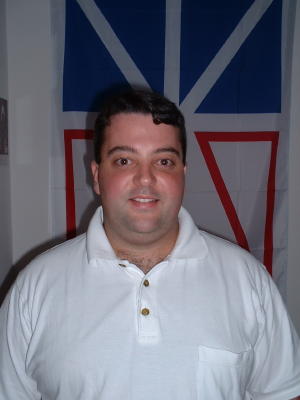Brain research
Last week sometime, one of the daily editions of eSchool News that I get in my inbox had an article in that entitled Your brain: Search engine, or calculator?. I found this an interesting piece because I have written in the past, on my other blog (i.e., Virtual High School Meanderings), about some of these brain research issues (see Do Today's Students Think Differently? and Students with Neomillennial Learning Styles and Virtual High Schools).
This line of brain research fascinates me. For example, Ian Jukes over at The Committed Sardine Blog posts about this often (see his Brain/Mind category entries). In looking through those entries, you find all sorts of interesting facts about brain research:
- We know from recent research on adolescent brain patterns that teens are the most alert after 10:00AM in the morning and can work late into the evening. (from Late to Bed, Early to Rise...)
- Teens depend on virtual world to communicate and explore their identities. Blogging and webcams may create generation of narcissists. At the height of adolescent awkwardness, the 15-year-old boy knows where he can always go to feel confident and at ease. He finds empowerment at the computer keyboard. (Cyberspace Shapes Children's Attitudes, Social Interactions)
- "If we ask them to read a sentence we can actually look at them processing a single sentence. In other words we can look at the footprint of a single thought," Professor Keith Thulborn, from Chicago's Centre for Magnetic Resonance Imaging, said. (Scientists Track Footprints of Thoughts)
- Brain scans show that the brains of people who are lying look very different from those of people who are telling the truth, U.S. researchers said on Monday. (Truth, Lies Differ in Brain Scans)
- Aodccrnig to rscheearch at Cmabrigde Uinervtisy, it dnsoe't rllaey mttaer in waht oredr the ltteers in a wrod are squeneced, the olny iprmoatnt tihng is taht the frist and lsat ltteer be in the rghit pclae. (The Amazing Human Mind)
When I look at some of these facts, I'm fascinated with how the brain works and how little wereally know about the one variable that is most important in a child's learning experience. As these relevations come to light, what does that means for our classroom practice.
For example, the news.com article stated:
"Interestingly, the whole field of artificial intelligence has moved from a Boolean model, in which systems guide themselves through a series of embedded rules, to a Bayesian model, in which machines guide themselves by studying past experiences. Bayesian probability also underlies search engines."
What does that mean for how I would teach a student in my post-secondary classroom or how a secod school teacher would change their instuction for an adoloscent learner? It must have some impact on what we should do, but I haven't seen anything yet that suggests what that something is.
For those who are following along, are you aware of any practical pieces that have come from any of this brain research that has been so popular as of late? In addition, if our brain is more of a search engine as opposed to a calculator, what does that means for how I engage in my classroom practice?
Tags: brain, high school, higher education, education



0 Comments:
Post a Comment
<< Home